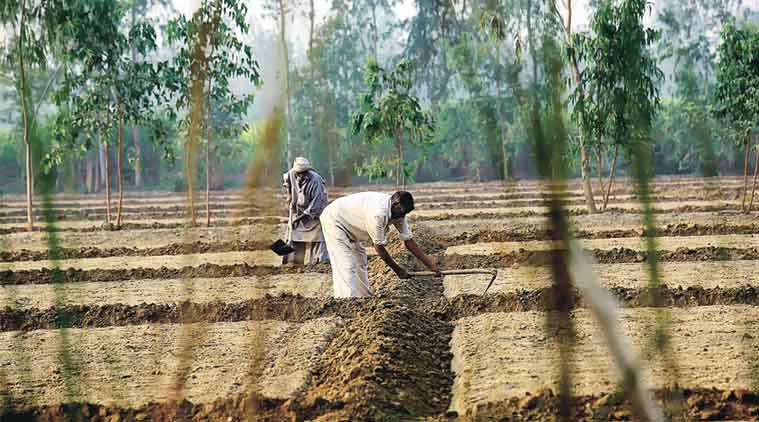Initiatives such as the Make in India scheme notwithstanding, it is the renewed thrust on the hinterland and “well-designed” rural employment guarantee schemes which could be the key drivers for employment generation, believes the International Labour Organization’s Director-General Guy Ryder.
He, however, flagged the decline in India’s female labour force participation rate, especially in the rural areas, and an increasing contractualisation of the formal labour force as areas of concern. And a China-modelled assembly line set-up, he said, might not work for India.

[related-post]
Watch Video: What’s making news
“Most observers would not see that India, I don’t want to make any invidious comparisons, is not going to follow the Chinese road. I don’t think that the Indian manufacturing sector is going to end up looking like the Chinese manufacturing sector 20 years back. Two reasons, one, India is different from China in the structure of your economy, your possibilities, and secondly, manufacturing has changed itself in the last 20 years. It is wrong, given technological innovation, given organisational changes in production, to believe that industry is going to be organised on the mass production, high-employment intensity model that carried China forward. India is facing different national circumstances and different technological and industrial model circumstances,” Ryder told The Indian Express.
Story continues below this ad
Ryder, who was on a five-day visit to India from July 5-9, said schemes like Make in India may be a way for assuring high-quality and value-added jobs, but India should also focus on its rural sector as well as the huge services sector, which is “pre-industrial” in nature. Terming it as a mistake of ILO to not look at rural sector as a source of good employment, Ryder said, it should not be written off as “yesterday’s news” and instead the government should refocus on rural infrastructure and rural economy.
“Manufacturing is important, I am not trying to say only about employment and from all of the conversations I have had here in India, everybody recognises the potential and necessity of increasing the manufacturing base. But, you also have something every special in India. You have a very large service sector but at the risk of being over simplistic, it’s a pre-industrial service sector. Now, modern economies developing a service sector is post-industrial phenomenon and it’s seen as a move up the value chain. India has in some sense a pre-industrial service sector and that has to be looked at,” Ryder said.
He added, “I want to make a sort of confession. I think the ILO and the international system in general, rather forgot to look at rural sector as a source of good employment. The orthodox is that in the 1980s and the 1990s, the rural (sector) was the second best. The rural (sector) was yesterday’s news and that the forward path of development and structural change was to get people out of the rural and bring them into manufacturing. I think that was a mistake. I am honest and I think it is right to refocus on the rural economy and the government is to be congratulated for doing that both in terms of rural infrastructure investment and in terms of rural employment policies. The rural sector can be unitedly, must be, a source of good employment. “
When asked about the importance of rural employment guarantee schemes, Ryder expressed hope that the NDA government “will maintain” the schemes started by the previous government as well as “see the benefit of such schemes”.
Story continues below this ad
“In India, the rural employment guarantee scheme, introduced by the previous government, seemed to be having a positive effect. So, we had worked with it and we had thought of it as a very positive addition. Now I do understand that the new government is looking at the scheme again, but my deal is that (they should be) well-designed and of course, these schemes have to do well, they have to be effective in their delivery. I hope that the government, in whatever direction it chooses to pursue, will see the benefit of these schemes and will maintain them because reaching the poor in these conditions is fundamentally important,” he said.
Highlighting the importance of rural employment guarantee schemes and direct transfers in reduction of poverty across the world, Ryder emphasised on the need for “well-designed” rural schemes, which are efficient in delivery till the last mile.
“The point that I am trying to make is about the need of a good design of these projects. John Maynard Keynes in the 1920s and 1930s said that a good idea at times of the Great Depression was to pay people to dig a hole and then to fill it in, do nothing productive, just a way of getting money to them.
I suspect if he was alive today, he would probably qualify that decision. I don’t think we should be providing finance simply for digging holes and filling them again. It is not about building roads to nowhere, bridges over nothing. The good design of these projects, I see no reason (why) it should not be this way to provide productive work, work which has value in itself, which does leave assets with community, but I repeat it’s a matter of design,” he said.
Story continues below this ad
After the BJP-led government came to power, Prime Minister Narendra Modi had termed the Mahatma Gandhi National Rural Employment Guarantee Scheme (MNREGS) as a “living monument of your (the Congress’) failure to tackle poverty in 60 years”. The BJP’s argument was that it would not create any assets. However, crises in farm sector due to two straight years of droughts resulted in Centre softening its stance towards the scheme. In the FY17 Budget, finance minister Arun Jaitley hiked the allocation for MNREGS to Rs 38,500 crore, higher than the revised estimate of Rs 35,766.75 crore for the previous fiscal.

 India is different from China in the structure of your economy… It is wrong to believe that industry is going to be organised on the mass production, high-employment intensity model that carried China forward,” International Labour Organization’s Director-General Guy Ryder said.
India is different from China in the structure of your economy… It is wrong to believe that industry is going to be organised on the mass production, high-employment intensity model that carried China forward,” International Labour Organization’s Director-General Guy Ryder said.






























